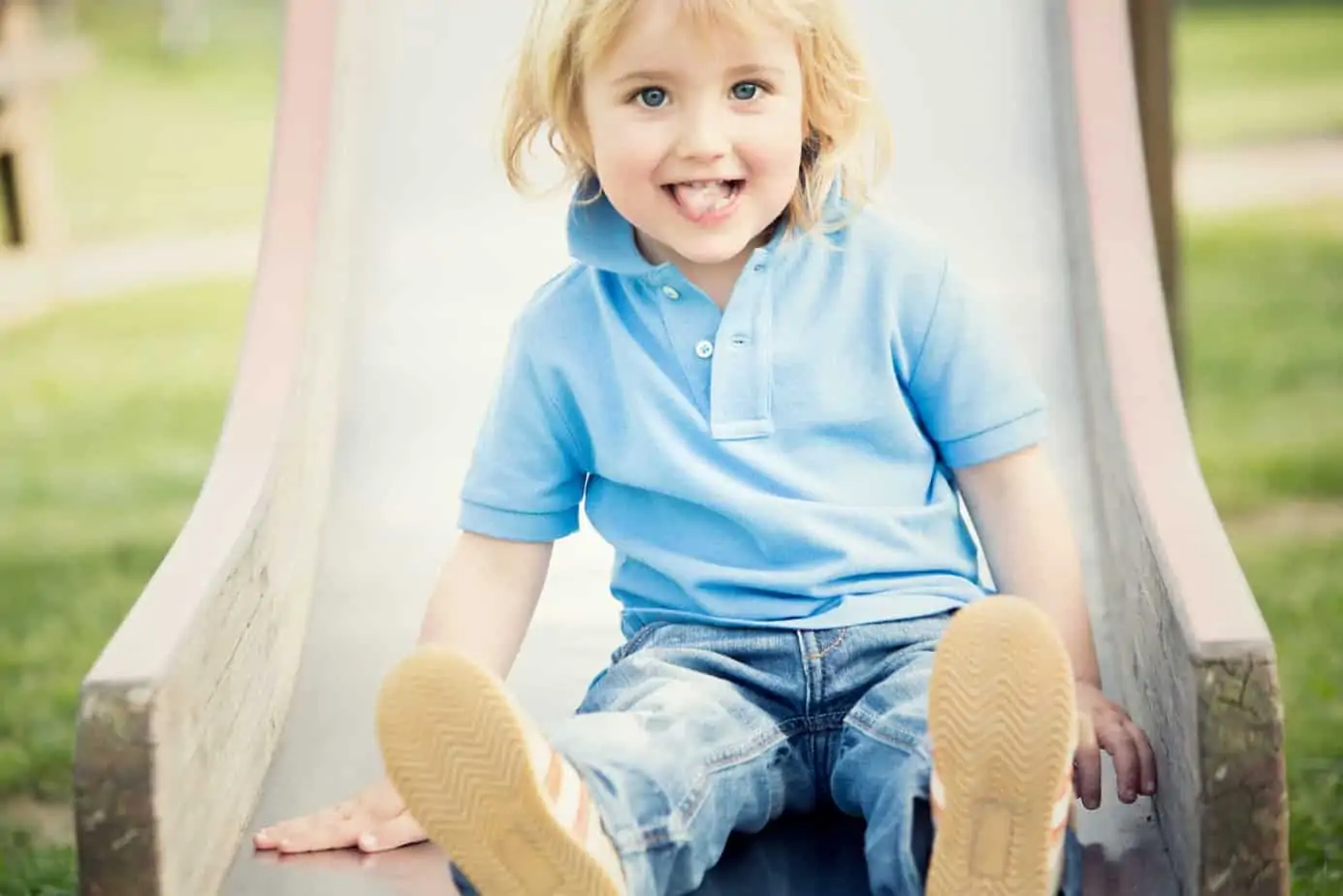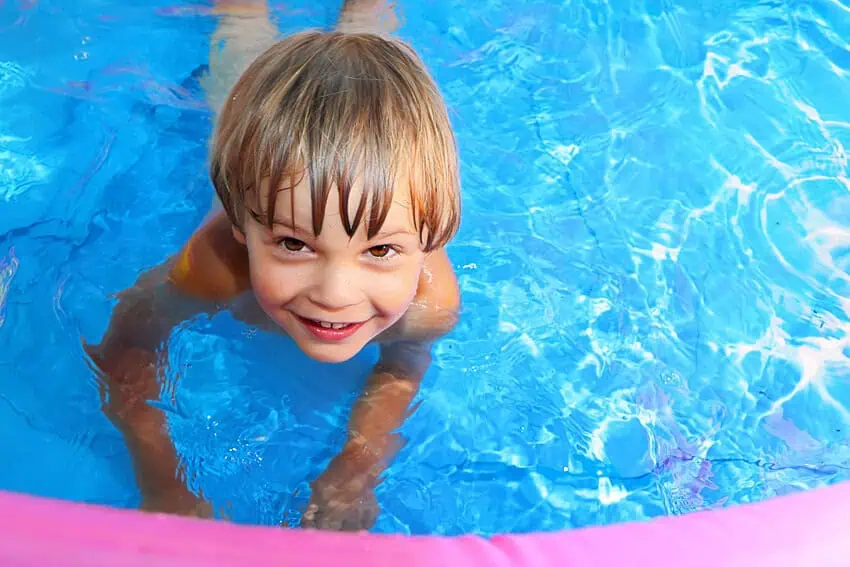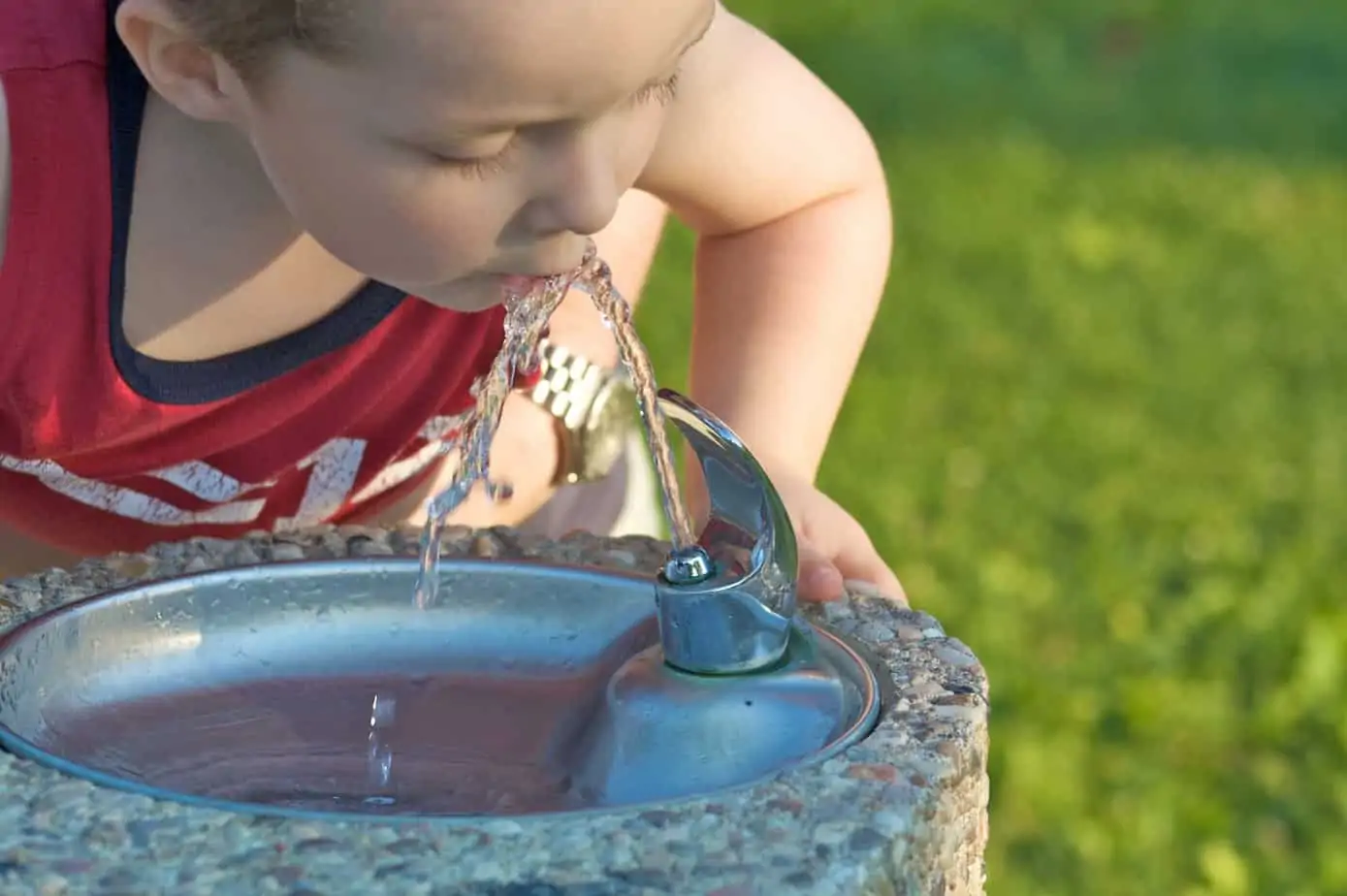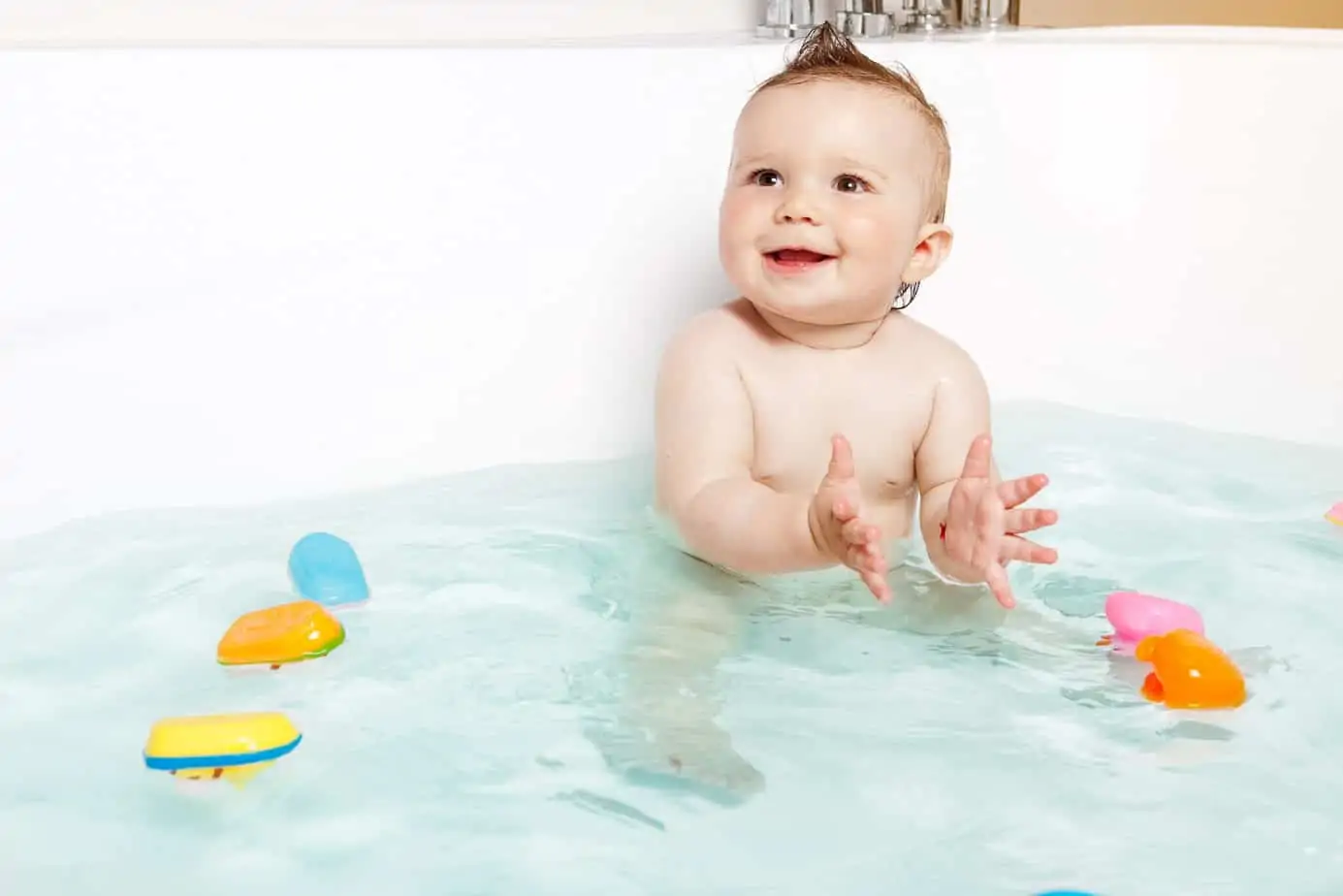I’m happy to partner with our sponsor, American Dental Association (ADA) to share these tips for creating good dental care and habits for strong and healthy teeth.
Teaching your little ones about the steps to good dental habits will be a lifelong benefit. It’s worth investing the time now in your kid’s teeth to make sure you teach proper oral habits to build and maintain strong and healthy teeth.
40% of kids will have at least one cavity by the time they enter Kindergarten, but by teaching good brushing habits and proper flossing early, their teeth can have a better start to lifelong oral health.
Some parents may say that baby teeth will fall out, so they don’t need as much care, but these are the placeholders for permanent adult teeth, and baby teeth need just as much care and attention now as they do throughout life, according to the American Dental Association (ADA).
Brushing teeth will become a habit that’s as easy as eating, getting dressed and bathing… it’s done without a battle or met with resistance because the experience is enjoyable and kids feel empowered to be healthy.
These 10 healthy habits will help keep your kid’s teeth strong and healthy
1. Let Your Child Pick Out Their Own Supplies
Take your child shopping and give them age-appropriate choices to select their own toothbrush and toothpaste. Picking out their supplies will get teeth brushing off to a fun start!
Children’s mouths are sensitive to certain flavors, be sure to offer gentle flavor choices. Strong mint and cinnamon flavors meant for adults aren’t always the best fit for pint-sized mouths and can create an unpleasant burning or tingling sensation. Find a flavor your child enjoys so teeth brushing is a fun and enjoyable experience, not a daily battle.
Little mouths also require smaller and softer brush bristles. Spin brushes can be a great option to get all the little spots between tiny teeth and are fun. Cartoon characters and animals will help them to be excited for brushing in the morning and evenings.
For babies, oral health starts at birth. Your baby is born with 20 teeth hidden just below their gums. Gently use a clean cloth to wipe down gums from baby food, milk residue or juices even before the first tooth breaks through. Baby teeth start showing up between 6 months and a year and most kids have their full set of teeth by 3 years old. Good dental habits must start early to have good lifelong oral health.
When you pick up supplies, look for the ADA Seal of Acceptance (it will display the Seal). Here are our favorites we recently restocked and all have the ADA Seal of Acceptance.
2. Two Minutes of Brushing Fun
Turn on the music or sing a song while you brush to help pass the dentist-recommended two minutes of brushing. Here are a few kid-friendly favorites:
- Sing the ABCs two or three times
- Use the tooth brushing song found here
- Make up your own silly song
If you don’t want to put on music, set a timer for two minutes or practice counting to 120 to get in the full two-minutes.
3. Model Good Brushing Behavior
Your kids will learn good habits from the people they spend the most time with – their parents. To encourage proper dental habits, you need to model this behavior for them. Brush your teeth with your kids in the morning and evenings so they can see and learn how it’s done.
Talk about what you’re doing so they can hear and see all the steps to brushing. Brush in small circles on every surface of your teeth, and angle your toothbrush so they also see the proper motions for getting every spot.
Another tip is to brush little teeth while standing behind them and looking in the mirror so they can see how to do it themselves. Gently hold their hand and guide them in brushing technique. Kids don’t have the best gross motor control to brush on their own until the age of 7, so it’s best you keep assisting and supervising this process until they’ve mastered it solo. When it’s time to give them a try, spot check afterwards and get any missed areas.
Another trick is to turn this time into a fun game. Play Follow the Leader or Copycat with your son or daughter while you brush and they stand watching you. For example, when you brush on top, they must follow your lead. When you move to brushing back teeth, so must they.
4. Sticker Charts & Super Heroes
Some kids require a bit more motivation to get into a routine. Using a simple sticker chart to work towards a reward or prize will make this habit, one kids want to be a part of!
Use a fun storyline where your child is the superhero for their own mouth! Some examples:
- The superhero must brush off all the super bugs from eating holes in their teeth
- Pretend he’s a superhero protecting his teeth from the “bad guys”
- The superhero will stop at nothing to make sure the plaque monsters don’t leave icky stuff in his mouth
5. Sit Down to Stop the Wiggles
Kids have a hard time completely stopping their bodies from moving. They’re generally moving every minute of the day they’re awake and when it’s time to brush their teeth, this is no exception. All this moving can make tooth brushing hard, and painful even. If they’re bouncing around while you try to clean their teeth and accidentally scrub their gums or hit a tooth, this can make the daily experiences dreadful.
Try sitting on a seat, the counter or a stepping stool. If bath time is before bed, scrub those teeth while they sit in the tub.
6. Fruits & Veggies
Good dental habits are a big part of having strong, healthy teeth, but nutrition plays a large role as well. Snacking on nutritious and fibrous foods such as fruits and vegetables in place of processed foods and sugary items will help to clean teeth as well as build strong bones and teeth. Remember, good teeth habits are practiced all day long, not just brushing morning and night.
- Here is a list of the best foods for dental health as provided by the ADA.
- And here are the top 9 foods that can damage your teeth according to the ADA.
7. No Food Before Bed
It’s especially important to stay away from milk and juices (even those labeled 100% natural) after brushing and during the day. Milk sugars – in a bottle or in a cup – can cause tooth decay if left on teeth overnight or for too long during the day.
As kids go through growth spurts and their level of activity increases with age, a high protein snack before bed can hold them over until morning, but don’t forget to brush afterwards.
As a rule of thumb, teeth brushing should be the last thing your child does before bedtime. No snacks or drinks after they’ve brushed their teeth, unless you plan to brush again.
Infants and babies who suck on bottles filled with sweetened drinks and milk, or pacifiers dipped into milk, juices, honey or sugar, can be particularly susceptible to tooth decay. (More on baby bottle tooth decay)
You can also expose your baby and young children to cavity-causing bacteria when a parent cleans a baby spoon or pacifier in their own mouth, and then passes it to their child.
8. Fluoride is Key to Fighting Cavities & Decay
Fluoride is a natural mineral found in water sources (rivers, lakes, and oceans) which is added to toothpastes to help make tooth enamel more resistant to decay. It can also help repair weakened tooth enamel and is often referred to as “nature’s cavity fighter.”
Since drinking water is the best way to replenish your child’s fluids and keep them hydrated, drinking water with fluoride is a great way to do double duty. Fluoride has been shown to reduce cavities by as much as 25%! Many bottled waters do not contain fluoride and if you’re unsure about your tap water, contact your local or state water supplier.
For children who can brush and spit without swallowing, they are old enough to use a pea-sized amount of fluoride toothpaste. Children under 3 years old should use a small smear of fluoride toothpaste (about the size of a grain of rice) to brush with.
9. Schedule Your First Dental Visit
The ADA recommends taking your baby for their first dental visit after their first tooth appears or by your child’s first birthday. It’s important not to wait until your child starts school, loses their baby teeth or needs to be seen for a dental emergency.
Getting them comfortable with the dentist’s office starts young!
The first dental appointment is mainly to get comfortable with their mouth being examined and to check development. It’s important to choose a pediatric provider who will make your child comfortable, and is comfortable seeing young patients.
Consider making your appointment in the morning or at the point in the day where you child is most rested and open to a new experience. Any anxiety you may have visiting the dentist’s office will be picked up on by your child so keep your anxiety and concerns to yourself. Prep your child in advance of what goes on at a dentist’s office so they’re prepared ahead of time.
Read more on what to expect at your child’s first dental appointment.
10. Routine Appointments
After the first dental visit, plan for regular checkups.
You can expect appointments to include:
- Cleaning your child’s teeth, removal of any plaque and flossing
- Fluoride treatment (with a flavor of their choosing!)
- Inspecting for cavities and other concerns
- Pointing out spots for concern and areas where brushing improvement is needed
- Discussing any concerns you may have about oral habits (pacifiers, bottles, thumb sucking, eating habits)
I’m happy to partner with our sponsor, American Dental Association (ADA) to share these tips for creating good dental care and habits for strong and healthy teeth.
Want even more?
Shop All Parenting Resources
Shop all of our parenting resources from self-regulation tools and managing big emotions to building self esteem and confidence. There are resources for all seasons of life!












All the mom should tell their babies that brushing teeth is a fun game. In this way, babies will make it habit and will never forget to do it.
I like how you suggested making two minutes of brushing fun with a song. Last time I took my daughter to the dentist they told me she needs to brush better. Thanks for the tips on healthy teeth habits for kids.